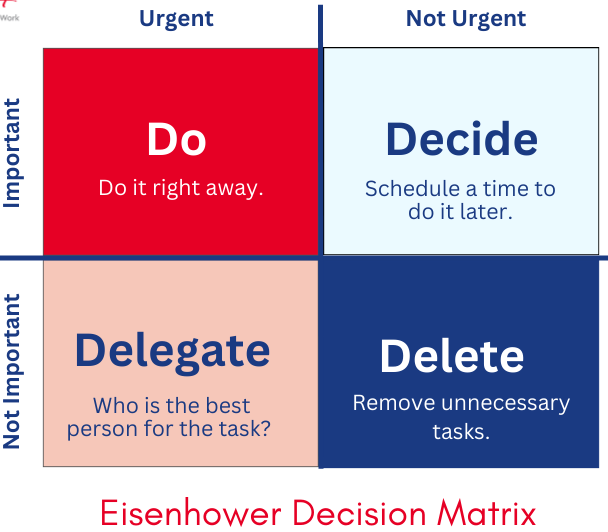 Most of us have been stepped into the hospital or healthcare setting at least once would imagine how busy could be. Being a nurse in a rapid-paced environment, it is not only juggling tasks, but also delivering quality care amidst the chaos. That’s where time management becomes more than a concept, it’s a vital survival skill. Nurses confront complex challenges that demand constant adaptability. Our job isn’t purely clinical; it includes administrative duties, patient communication, and a slew of unpredictable variables—all within a single shift.
Most of us have been stepped into the hospital or healthcare setting at least once would imagine how busy could be. Being a nurse in a rapid-paced environment, it is not only juggling tasks, but also delivering quality care amidst the chaos. That’s where time management becomes more than a concept, it’s a vital survival skill. Nurses confront complex challenges that demand constant adaptability. Our job isn’t purely clinical; it includes administrative duties, patient communication, and a slew of unpredictable variables—all within a single shift.
Breaking down why carving out time for every responsibility is so prevailing in a nurse’s role will be presented in this section. Firstly, high-quality patient care is a must. It requires vigilant attention and swift decision-making, and it is achievable with effective time management. When nurses optimize their schedules and manage their tasks well, they not only uphold the standards of care but also facilitate patient recovery and satisfaction.
The huge effects of proper time management are extended beyond professional obligations. Stress, a common sidekick of nursing, can curb a nurse’s efficacy. By implementing strategic time management techniques, nurses can alleviate some of the pressures that come with the job. Furthermore, balancing the scales between their work duties and personal life becomes much simpler. With a good handle on time, nurses can manage stress and burnout, ensuring they continue to save lives or at least to take care of patients on day to day basic.
These concepts are so important, and they assist in sustainable nursing career. So, what practical strategies can nurses utilize to manage their time effectively? You are going to explore and delve into how you can prioritize tasks and leverage your team to stay on top of the fast-paced medical environment.
Strategic Planning and Delegation: Keys to Efficient Nursing
 Strategic planning sounds like for business executives, but it is a vital element of a nurse’s daily routine. Managing a chaotic healthcare environment begins with mastering the art of prioritization.
Strategic planning sounds like for business executives, but it is a vital element of a nurse’s daily routine. Managing a chaotic healthcare environment begins with mastering the art of prioritization.
Firstly, Prioritize Tasks: Nurses can adopt the ABC Method that categorizing tasks into three levels of importance. Critical ‘A’ tasks, such as administering medications on time or bleeding wound management, receive top priority. Next are important but not urgent ‘B’ tasks, like updating patient records, assisting with hygiene or personal needs followed by ‘C’ tasks which are low priority activities, for instance bed making.
The Eisenhower Matrix further refines this by dividing tasks into four quadrants: urgent and important, important but not urgent, urgent but not important, and neither urgent nor important. This method ensures that nurses are always focusing their energy in the right place, which could mean attending to an emergency patient over paperwork that can wait.
Secondly, Delegation. Delegation is another significant strategy for time management in nursing. It’s not about avoiding workload; it’s about team efficiency. Nurses often work with assisted nurses or other healthcare team members who can take on tasks like patient transfers, personal hygiene or vital sign observations. By clearly communicating and entrusting tasks to colleagues, nurses can concentrate on the duties that require their specialized skills and knowledge.
Technology can also be a great help in a nurse’s busy schedule. Electronic health records (EHR) or other electronic system can help with scheduling and improve team communication. Leveraging these tools means spending less time on paperwork and more time with patients to provide the best and safest care as desired.
Choosing strategy that resonates with you is vital. Every nurse prioritizes or delegates differently. What’s essential is developing a system that aligns with your workflow and the needs of your patients.
Managing the Clock: Scheduling and Interruption Handling
This section will present the power of a well-constructed schedule and how it can be a lifesaver in a nursing shift.
Thirdly, Create a Schedule. It begins with daily planning. It is important to take a moment for strategic thinking at the beginning of your shift. Break your day into manageable blocks of time allotting slots for patient care, documentation, and other responsibilities. This approach helps you stay focused and makes your tasks more efficient.
Checklists are your friend – a great reminder and life saver. They ensure consistency and help standardize care procedures, which is particularly useful when handling multiple patients with varying needs.
Fourthly, Manage Interruptions. You always experience but might not have a firm handle on—interruptions. Set aside specific times to deal with non-critical tasks such as returning calls. By doing so, you create more efficient time to allow you to deal with urgent matters without falling behind on other responsibilities.
And yes, quiet zone. Some tasks require more concentration than others, and finding a space that minimizes interruptions can be crucial for tasks like documentation or reviewing a patient’s history to have a thorough reading or writing regarding your specific patient care provided.
Switching your approaches around when suitable is vital, but by setting up these boundaries and schedules, you’re creating a framework that allows you to bring your best care to patients while keeping stress at bay.
Holistic Time Management: Self-Care, Learning, and Effective Communication
In order to manage time effectively, remember, you’re in this for the long haul.
Next strategy is Self-Care and Stress Management: Self-care is as important as proving the best care possible for patients and it is sustainable nursing practice. It begins with taking regular short breaks and sticking to healthy lifestyle choices, you can maintain your stamina and keep that sharp focus that’s so crucial in nursing career.
Apart from that, understand the importance of reflective practice is pivotal. Regularly reflex back your shifts: what went well, what went south, and how you can adapt your strategies. This is not only staying organized, but also growing as a professional. Never underestimate the power of attending workshops and training sessions—they’re investments in your capabilities that can pay dividends in time saved down the road.
Lastly, it is vital to remain effective communication. Be clear, be concise, and use pre-shift huddles to your advantage. For example, my manager always uses huddles at the beginning of the shift to announce about the patients’ events or remind us of what is the most important matters to focus for the week, and it works really well for all of us in general. That’s why, it’s about getting everyone on the same page quickly and efficiently. And, of course, technology can be a real ally here. Use those time management apps and electronic health records to cut through the clutter.
Time management in nursing is more than a set of strategies; it’s a comprehensive approach that blends organization, communication, and self-care into a coherent, sustainable practice. By integrating these principles into your daily routines, you’ll set yourself up for a more streamlined shift every time. Swapping your strategies around, find what resonates with you, and go from there. Remember, the goal is to provide the best care possible, both for you and your patients.

This blog post on time management strategies for nurses is incredibly insightful and resonates deeply with the challenges faced in the healthcare environment. The emphasis on the multifaceted nature of nursing duties and the importance of strategic planning and delegation is spot on.
I particularly appreciated the breakdown of prioritization techniques like the ABC Method and the Eisenhower Matrix, providing clear frameworks for managing tasks effectively. It’s evident that by implementing such methods, nurses can optimize their time and focus on delivering high-quality patient care.
Overall, this article offers practical strategies and valuable insights that I believe will greatly benefit nurses in navigating their demanding roles. I’m curious to know if there are any specific time management techniques or tools that other healthcare professionals have found particularly effective in their practice.
Thank you Adnan for your insightful comment. Yes, I personally find the prioritization techniques such as ABC Method and Eisenhower Matrix are super helpful when prioritizing tasks especially in chaotic time.
Same as you Adnan, I would love to hear if there are any specific time management techniques or tools that other healthcare professionals have found particularly effective in their practice, please share.
Cheers,
Jen Bui
Proper time management is critical to self management and personal efficiency for nurses and for everyone else particularly if you have a busy schedule. Some thought leaders like John Maxwell even say that time is more important than money because time is irreplaceable.
I learned quite a number of things from this comprehensive post. I am familiar with the time management matrix showing the intersection between tasks that are important or not important versus urgent or not urgent. What I have not come across is the very interesting designation of the boxes within the matrix into, do, delegate, decide and delete.
Another point I noted was your tip about the use of technology. From the simple alarm clock, to the EHR and today’s other AI powered gadgets, technology can help us organize our tasks and improve our efficiency. This post made for very enjoyable reading.
I wasn’t quite clear about what you meant when you stated that your manager uses huddles to communicate. Do you mean short stand-up meetings?
Thank you for your thoughtful comment, Oluseyi. I am glad that you find my post as a meaningful one.
Our manager uses huddles to communicate every few days (or Mondays) at the beginning of the shift that before we start our morning shift, we get all together at the nurse station so our NUM (Nursing Unit Manager) will go through all the patients’ surveys – what we are good at and what we need to improve, how the ward is going regarding patients care and what is the main focus for the day or week. From there, we prepare our days or week in advance to manage our tasks and complete more efficiency.
I hope it answers your query.
Cheers,
Jen Bui